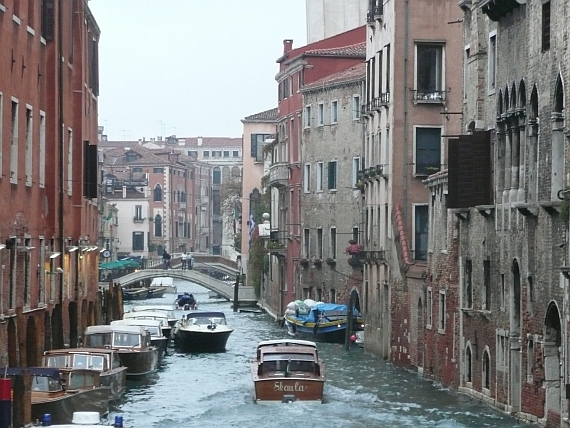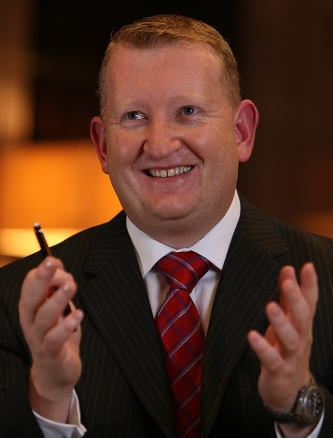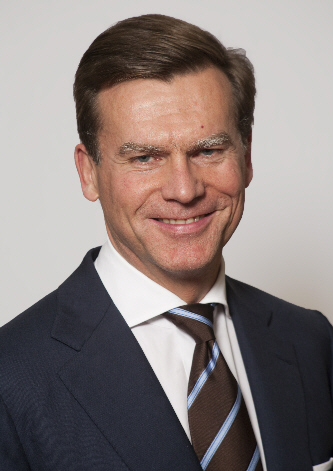Nevertheless industry cautiously optimistic at IHC Venice
 |
|
| The hotel industry still suffers from the crisis effects. More than 200 participants discussed the status quo at the IHC 2010 in Venice. |
Venice (October 29, 2010). A mood of cautious optimism infused this autumn’s International Hotel Conference (IHC) in Venice. Andrew Sangster, moderator of the opening plenary session told the audience of hoteliers, investors, lawyers, consultants, architects and suppliers that it was about a tale of two recessions. Borrowing from Charles Dicken’s novel “A Tale of Two Cities”, Sangster saw the “worst of times” being the declines in GDP and double digit drops in RevPAR. The “best of times” being the lower than expected levels of unemployment rates and foreclosures.
“The 2011 forecast for Hilton is cautiously optimistic,” stated panellist Patrick Fitzgibbon, Senior Vice President, Europe & Africa, Hilton Worldwide, “and we are climbing out of where we were.” Fitzgibbon cited the actions taken by governments across Europe to create confidence. A confidence that Hilton is matching with 26 new hotels currently “coming out of the ground” and a total of 75 hotels to be added by 2012. Thomas Magnusson, CEO of Magnusson Hotels, a US-based “marketing utility” provider supplying distribution services on a commission-only basis to approximately 1,500 independent hotels in North America and starting out with 55 in the UK, saw a little bit of pick up everywhere but noted the US environment as being much worse than Europe. Russell Kett, Managing Director, HVS took the slightly more sceptical view that “we are still bumping along the bottom (of) the worst and longest recession”.
This left the affable Wolfgang Neumann, billed as a “consultant” after leaving ArabellaStarwood recently, to find the middle ground. “None of us know how 2011 will turn out (and) a careful approach is needed,” stated the pragmatic Neumann. “Germany was a powerhouse that surprised everyone,” he continued adding that dependent on your market mix, German RevPAR growth in 2011 should be anywhere between 3% and 5%.
 |
|
| Patrick Fitzgibbon. |
Rates and guest satisfactions low
Neumann stated that the RevPAR gains are been driven by volume. Corporate business may be back but it is very cautious. With occupancies increasing and yet rates still low, profitability becomes an issue, he explained, as already significantly reduced costs cannot be trimmed further. Neumann referred to the earlier JD Power survey presentation in which guest satisfaction fell between 2009 and 2010 for all aspects of the lodging experience apart from rate. So whilst low rates were much appreciated, guests were unhappy with the other aspects of their stay such as service, amenities and maintenance. These are suffering as a result of the cost pressures. A case of goodbye to a free daily paper and hello to chipped paintwork.
With regard to the problem of financing such deferred refurbishments, Fitzgibbon saw that this was especially difficult for owners who bought at the top of the market and still need to invest. “If hotels have used their FF&E reserve then they are OK but many hotels don’t now have these available,” he explained. Kett agreed, “we are fighting our way out of it but it is the capex side that is the huge challenge,” regarding the expected long delay before development loans will become available.
Keep brands clean
“There is a stalemate as banks cannot lend and hotels cannot service their debts in the current downturn,” explained Kett. There are no lenders available, as witnessed by the attendance of just three bankers, and if they had anything to lend it would be on a 50% loan to value basis Kett continued. Neumann stressed the need to affiliate with an international brand to have any chance to obtain finance.
 |
|
| Wolfgang Neumann. |
Neumann also mentioned that with over 800 brands in the market a key issue continues to be their differentiation amongst a more sophisticated and demanding audience. “Owners who can manage and exploit the brand, getting good value for their fees, will do best,” he said.
It is to be expected that Fitzgibbon would support the cause of the brands emphasising on several occasions the need for and advantages of consistency. “Brands must be prepared to get rid of ‘under-demolished hotels’ to keep brands clean and maintain brand standards,” he explained crediting Kett with the ‘under demolished hotels’ quote from a few years ago. Fitzgibbon also saw the potential for poor performing markets to benefit from franchise opportunities that would appeal to ‘ma and pa’ outfits allowing them to benefit from the chains’ offers of consistency and standards. “There is exponential growth in franchising in the next years, especially in Italy,” he stated.
Magnusson alternatively saw the rise of the independent hoteliers as the main trend, clearly biased towards the market for his own product. The Magnusson Hotels’ pay-as-you-go distribution service allows independent hoteliers to compete on a similar basis to the chains on the GDS, whilst the commission-only cost structure minimises their risk.
Outsourcing moves costs
Provided hotels can mange their costs, it is those owners who can react fastest to the upturn who will prosper. Outsourcing was discussed as a way to move fixed costs to variable, championed by Magnuson with the comment “make sure your suppliers are performance based”. Neumann advocated for such suppliers to be treated as partners; Fitzgibbon adding that operators must maintain management responsibility. Viewed another way, management weaknesses have been highlighted by the recession with, for example, the inability to motivate staff due to cost cutting. With breakeven points lower than before it is the smart, nimble hotels that will quickly increase in value.
|
IHC Venice 2010 - OPINIONS “The spirit is high and there is lots of optimism.” Morris Lasky, Chairman, Lodging Unlimited, the conference organisers. “The conference presented a positive attitude and gave me a feeling for the US hotel market and guest. The content was more related to city hotels and big brands than resorts and independents.” Pietro Luigi Valle, Board Member, Grupo Pestana, the Madeira-based Portuguese hotel group, the largest in Portugal and a top one hundred hotel group worldwide in terms of guest rooms. First time attendee. “The conference has a regional feel and is a good venue to convert an Italian project but not an international one. There was no noticeable decrease in the quality or quantity of attendees over last year but numbers are definitely down from Rome (in 2008).” Erin Green, Senior Director Luxury & Lifestyle Development, Hilton Worldwide. “I found the IHC conference to be a well-organized series of events and a wonderful way to meet a broad range of integral players in the hospitality industry. It was an intimate conference which allowed for meaningful discussion with key decision-makers.” Shawn Ursell, Associate, VOA Associates Incorporated, a multi-disciplinary architectural practice based in Chicago. First time attendee. |
|
Regarding Asian and Middle Eastern markets, the impact of outbound travellers with their significantly different expectations was still underestimated. How many hotels have staff that speak Mandarin or prepare alternative breakfasts? Fitzgibbon pointed to the very different business model of the Middle Eastern airlines, implying that hotel market share will also be lost to hotel groups from the region. Neumann countered by noting that many of the Asian hotel brands are not big in Europe and the USA because they are used to working with a very different cost structure particularly when it comes to payroll
Big names missing at IHC
Unable to obtain actual attendance figures from the organisers, Lodging Unlimited Inc, and so using the printed lists of registered attendees, revealed a decline from approximately 270 in 2009 to 225 in 2010. The plenary sessions attracted significantly lower audiences than this. Attendance by many of the lawyers and advisors was down or non-existent; Accor and Rezidor were notably absent. However the upside and the on-going advantage of this more intimate development conference is the opportunity of more efficient networking and a greater interaction between panels and the audience in both plenary and break out sessions. The party rolls on next year back to Rome and the refurbished conference space of the Hilton Cavalieri. / Guy Dittrich
November 6, 2009 Ongoing struggle
To print this article you have to be registered and logged in for newsletter, visitor or subscription.





